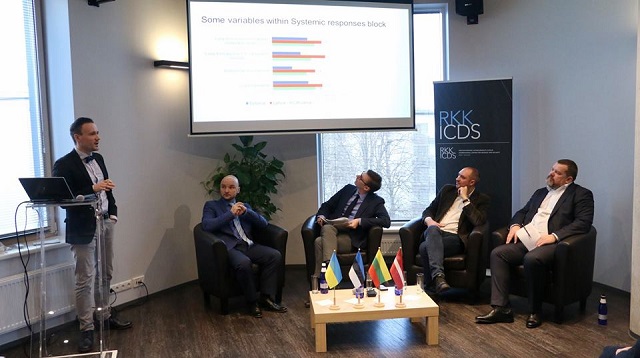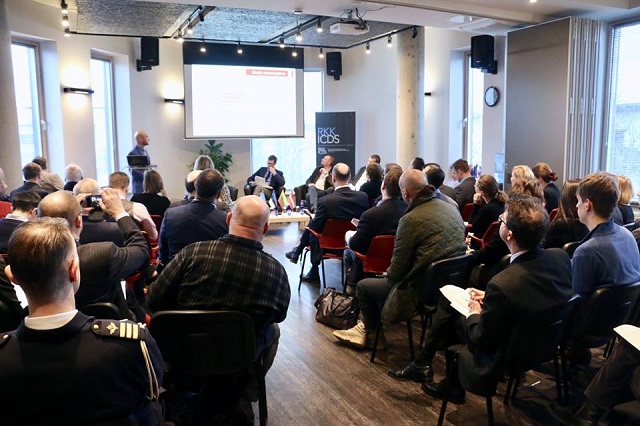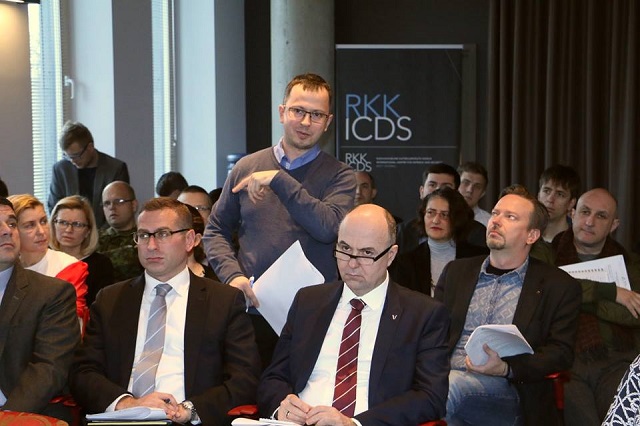On 7 December, EAST Center’s Andrei Yeliseyeu presented the measured quantitative index of the Baltic states’ resilience and vulnerability to Kremlin-backed disinformation. The presentation was hosted by the International Centre for Defence and Security (ICDS).
Other speakers included Dmitri Teperik, the Chief Executive for the International Centre for Defence and Security, Andis Kudors, the Executive director of the Centre for East European Policy Studies (Riga, Latvia), Viktor Denisenko, the Assistant Professor at the Vilnius University Faculty of Communication, EAST Center associated fellow (Vilnius, Lithuania). The discussion was moderated by Igor Merheim-Eyre, a Brussels-based analyst.
The study’s results show that Estonia has developed significantly better quality of systemic respondes to foreign-backed disinformation campaigns than Lithuania or Latvia. In turn, Lithuania is much less exposed to Kremlin-backed media environment and less vulnerable to digital warfare than Latvia and Estonia, largely due to less numerous Russian-speaking part of population than in the other Baltic states. Latvia does relatively worse than Lithuania and Estonia in all three Disinformation Resilince Index (DRI) indicators. The DRI measurement is based on a questionnaire filled in by at least 20 experienced experts in each country.
This presentation is part of the international research project Assessing Vulnerability and Resilience to Russian Disinformation Warfare: Practical Overview and Qualitative Evaluation of Critical Infrastructure, which is realized by the EAST Center in partnership with the Ukrainian Prism (Kyiv, Ukraine) and other regional research centers.




